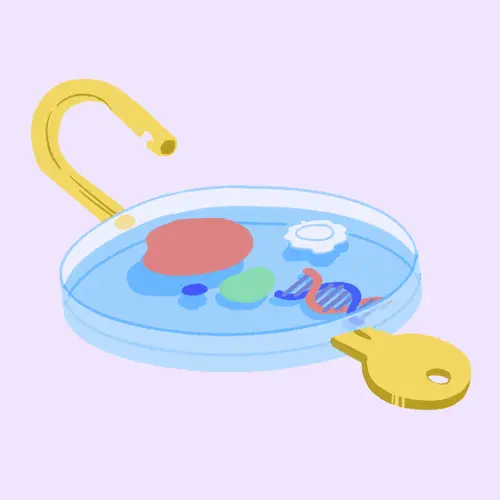Serum sickness is a reaction similar to an allergy, though often it does not occur as quickly as an allergic reaction. Serum sickness can be caused by exposure to certain medications, some snake antivenom, some vaccines that are antiserum-based, or the sting of a bee or other insect.
Why Does Serum Sickness Happen?
Your blood is made up of different parts, one of which is plasma. Plasma is the clear, liquid part of your blood's makeup. It doesn't contain any blood cells. It does contain proteins and antibodies that are necessary to your immune system. Plasma also contains antiserum – a protein-based compound that your body develops after exposure to a germ or toxin.
In serum sickness, your body mistakes a protein in the antiserum as a danger, and it triggers an immune response to it.
What Causes Bee Sting Serum Sickness?
Bees, wasps, and hornets are all related, but their abilities to sting and levels of aggression are different. For example, honeybees and bumblebees are not very aggressive, and they often don't sting unless directly bothered. When they do sting, they can only inject their stinger once. Wasps, hornets, and yellowjackets, however, can be more aggressive and are able to sting multiple times.
People can have a wide range of reactions to stings from these kinds of insects.
Immediate reaction. An immediate reaction occurs minutes to hours after the sting. You will experience pain, redness, swelling, and mild itching at the site of the sting.
Delayed reaction. Sometimes you may not experience a reaction until 4 hours or longer after the sting occurs. At that point you may begin to experience hives, fever, joint pain, swelling, and headache.
Allergic reaction. An allergic reaction can occur in just minutes up to several hours after the sting. A true allergic reaction can include a large local reaction with redness and swelling, fever, and nausea.
Anaphylaxis. Anaphylaxis is the most severe of possible reactions to an insect sting. It usually occurs 5-30 minutes after the sting. An anaphylactic reaction can cause airway swelling, heart irregularities, loss of consciousness, shock, or other symptoms that can be fatal.
Bee sting serum sickness. A less common — but still potentially very dangerous — reaction to an insect sting is bee sting serum sickness. In this instance, your immune system reacts to the foreign toxin introduced into your body by the bee sting. Typically, bee sting serum sickness occurs a few days or a week after the insect sting.
Some recorded cases of bee sting serum sickness have been observed after people have intentionally used bee toxins as an alternative therapy. Some practitioners offer bee venom injection therapy as a treatment for rheumatoid arthritis, multiple sclerosis, and other chronic inflammatory diseases. This practice has not been widely studied, and it has not proven to be helpful. It can cause a serum sickness reaction.
What Are the Symptoms of Bee Sting Serum Sickness?
Bee Sting Serum Sickness frequently causes these symptoms:
- Rash. This usually starts in a small area, gradually spreads across your body, and can open into small lesions.
- Fever. Fever caused by serum sickness can rise over 101 degrees Fahrenheit.
- Joint pain. Pain is most common in hands, wrists, knees, ankles, and shoulders.
- Swelling. Edema – buildup of fluid – occurs in your hands, feet, and face.
To diagnose bee sting serum sickness, your doctor will likely ask about these symptoms and want to see any rash that you have developed. You should also be ready to let your doctor know when you were stung, how many times you were stung, and — if possible — what kind of insect stung you.
Treatment for Bee Sting Serum Sickness
The majority of the time, the symptoms of bee sting serum sickness will improve on their own within 48 hours. As the chemical from the bee toxin is filtered out of your body, the sickness will begin to go away.
Your doctor may prescribe a non-steroidal pain medication — like ibuprofen or naproxen — to manage your swelling, fever, and general discomfort, as well as antihistamines to reduce your rash.
Usually, the likelihood for a complete recovery from bee sting serum sickness is very good. It is important, however, to avoid further exposure to the sting that triggered the reaction.
Research has shown that people with bee or wasp allergies can lessen their chances of having a serious reaction — either a severe allergic reaction or serum sickness — by using venom immunotherapy (VIT). This course of immunizations provides some protection against the impacts of accidental insect stings and may be recommended by your doctor.
Avoiding Insect Stings
The best way to prevent bee sting serum sickness is to avoid being stung by a bee, wasp, or another insect. Some ways to prevent insect stings include:
- Wear clean clothing and bathe daily to prevent the odor of sweat.
- Stay away from flowering plants when possible.
- Keep outdoor areas clear of food or drinks that may attract insects.
- If a stinging insect is flying around, remain calm. Do not swat or irritate it.
- If there is an insect in your car, slowly stop the car and open all the windows.
- Avoid perfumed or heavily scented soaps, shampoos, lotions, and deodorants.

